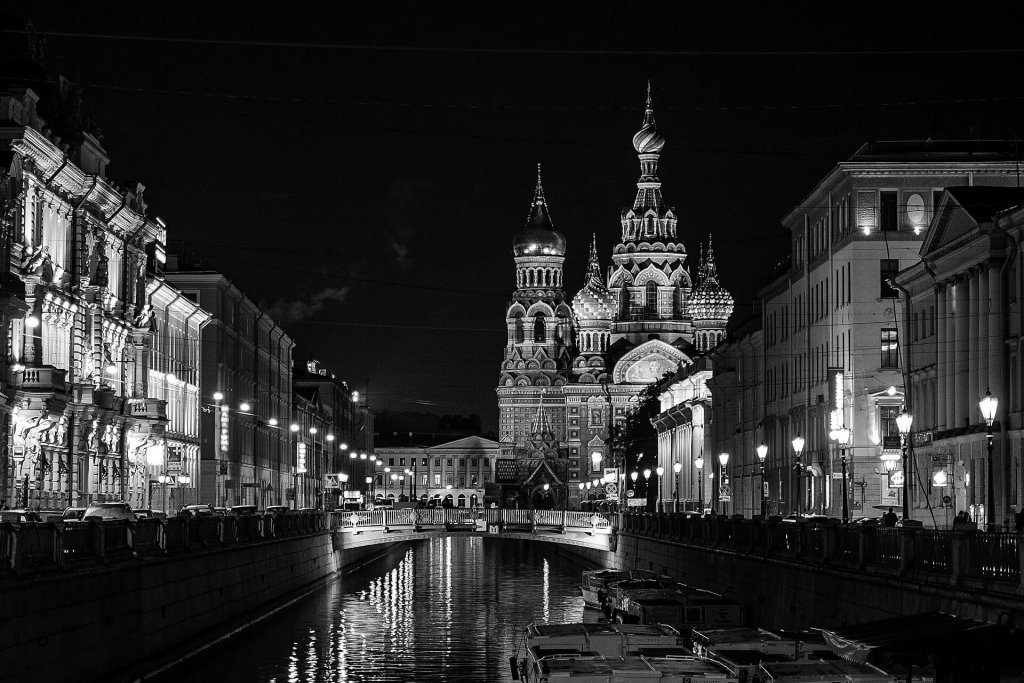Amidst the devastated stock markets and looming recession, the sharp drop in oil price is good news for many major economies, from China to Turkey, and from Japan to India, but it is a hard challenge for three leading world producers: Saudi Arabia, the USA, and Russia. Downward pressure on the oil price was building since the start of the year as Chinese demand was contracting, but it was the breakdown of the OPEC+ mechanism that caused the collapse. The benchmark Brent price, which reached $US 70 per barrel in early January and traded at $60 on February 20, dropped below $30 on March 16 and is set to stay at about $25-30 at the end of the month. A decline was pre-determined by fundamentals of supply and demand, but the landslide is caused by errors of political judgement.
It is clearly not possible to put the “Humpty-Dumpty” of OPEC+ together again, but a closer look at the rationale behind the Russian blunder might provide some clues to the possible further puzzles in the world energy market.
It was Russia that initiated the sudden death of the OPEC+ cartel arrangementon oil production cuts, which was negotiated in late 2016 between 14 OPEC member-states and 11 other countries and underpinned by a deal between Riyadh and Moscow. During 2019, Russia quietly abandoned its commitment and increased production, and it was perfectly possible to continue along the same pattern without making show of breaking the deal. Yet, Moscow opted for a demonstrative dismantlement of the minimally useful mechanism – and now finds itself facing consequences far more painful than expected. It is clearly not possible to put the “Humpty-Dumpty” of OPEC+ together again, but a closer look at the rationale behind the Russian blunder might provide some clues to the possible further puzzles in the world energy market.
The main incentive for making this risky pro-active move – and Russian experts are remarkably unanimous about this motivation – was the desire to push the US shale producers out of business (Krutihin, 2020). For years, GazpromandRosneftwere spinning the wishful assessments that the ‘shale revolution’ was just a bubble, and even now there is a striking misunderstanding of the technology and infrastructure securing the steady increase of unconventional oil and gas production in the United States. Igor Sechin, the ambitious CEO of Rosneft, is the main proponent of decisive offensive against the shale ‘anomaly’ and he has managed to convince President Vladimir Putin that the attack would make a strong impression on the Trump administration (Åslund, 2020). Business ignorance has met political posturing to produce a bad blunder.
Another incentive was the desire in the Kremlin to cut the Saudi Crown Prince Mohammed bin Salman down to size. Putin cultivated relations with Saudi Arabia for years, greeting King Salman in Moscow in October 2017 and visiting Riyadh in October 2019, but harvested few dividends from this effort. His irritation was apparently focused on the young and charismatic prince, who executes a program of reforms and enjoys cordial relations with US President Donald Trump, acting as an antipode to ageing Russian leader. Opting for a rude demarche against OPEC+, the Kremlin clearly underestimated Saudi readiness to strike back and announcement of a big increase in oil production, a move Russia cannot match (Suchkov, 2020).
These miscalculations were aggravated by a major overestimation of the strength of Russian economy in the unfolding global crisis. Russia has accumulated big currency reserves, and Putin still presumes that careful distribution of targeted support to the corporations of the military-industrial complex would suffice to avoid a major contraction. Experience from previous crises points to a different prospect: Russia invariably suffered a deeper decline than most major economies, and the distortion of its trade caused by Western sanctions makes it more rather than less vulnerable to external shocks (Inozemtsev, 2020). Russian government has not designed any anti-crisis program, and the spasm of recession may hit it again badly unprepared.
Russia may be the weakest link in the chain of suppliers in the oil market, but the repercussions of the massive over-production will hit painfully many exporters, from Venezuela to Iran.
Russia may be the weakest link in the chain of suppliers in the oil market, but the repercussions of the massive over-production will hit painfully many exporters, from Venezuela to Iran. In the US, some companies will have to stop pumping, but most will continue to operate claiming and receiving unprecedented financial support for covering domestic demand and building reserves. Saudi Arabia aims at achieving a significant increase of its share in the global market, but this expansion may cause dissolution of the dysfunctional OPEC, so that only a regional mini-cartel with Kuwait and the UAE will continue under Saudi patronage (Lee, 2020). Riyadh may also find it useful to establish closer coordination of its oil policy with the US, for whom this informal mechanism would serve not only for stabilizing the inherently volatile energy market, but also for putting pressure on Russia and China (Cunningham, 2020).
It is by no means certain, or even probable that a US-Saudi cooperation will strengthen, but the talks on this matter remind us that the connection between oil business and geopolitics is set to remain strong even on a saturated market with depressed prices. Heavy dependency upon import of hydrocarbons will remain one of China’s main strategic vulnerabilities, and in the evolving US-China contestation, it may not stay off limits in tests of power and resolve.
Petro-dictatorships around the world turn into fragile states, and it is in Russia where a sustained contraction of revenues may have the most dangerous consequences. Facing the spread of public discontent, Putin and his lieutenants may resort to the traditional instrument of mobilizing support and suppressing opposition – projecting military power. Containment remains a top priority for the West, and the damage to NATO solidarity inflicted by the COVID-19 pandemic must be repaired as the allies start to recover from shutdowns and lockdowns.
References
Åslund, Anders, 2020. “Russia is out of control: The dangerous Mr. Sechin”, New Atlanticist, US Atlantic Council, 23 March
Cunningham, Stephen, 2020. “US, Saudi oil deal under consideration: US Energy Secretary”, Bloomberg, 23 March
Inozemtsev, Vladislav, 2020. “Can Russia win (or survive) the oil price war?” Riddle, March 19
Krutihin, Mikhail, 2020. “Mistake of the optimist: Why oil prices will keep falling”, Forbes.ru (in Russian), 24 March
Lee, Julian, 2020. “The end of OPEC is here thanks to Saudi Arabia’s spat with Russia”, Bloomberg, 17 March
Suchkov, Maxim, 2020. “Russia hoping to overdo Saudis over time in coronavirus-hit oil market”,Al-Monitor, 23 March
_______________________________________________________________________________________________

Dr. Pavel K. Baev is a Research Professor at the Peace Research Institute, Oslo (PRIO). He is also Senior Non-Resident Fellow at the Center for the U.S. and Europe at the Brookings Institution (Washington D.C.), Senior Associate Researcher at the Institut Français des Relations Internationales(IFRI, Paris), and Senior Associate Research Fellow at the Italian Institute for International Political Studies (ISPI, Milan). His research interests include the transformation of the Russian military, the energy and security dimensions of the Russian-European relations, Russia’s Arctic policy, Russia-China partnership, post-Soviet conflict management in the Caucasus and the Caspian Basin, and Russia’s Middle East policy, which is supported by the Norwegian Foreign Ministry. He writes a weekly column in Eurasia Daily Monitor.


